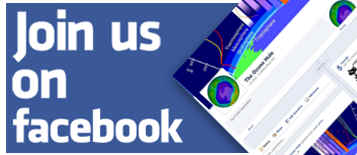
|
||||||||||||
|
|
|
Stephen Hawking (8 January 1942 – 14 March 2018)
Stephen William Hawking was born on 8 January 1942 (300 years after the death of Galileo) in Oxford, England. His parents' house was in north London, but during the second world war Oxford was considered a safer place to have babies. When he was eight, his family moved to St Albans, a town about 20 miles north of London. At eleven Stephen went to St Albans School, and then on to University College, Oxford, his father's old college. Stephen wanted to do Mathematics, although his father would have preferred medicine. Mathematics was not available at University College, so he did Physics instead. After three years and not very much work he was awarded a first class honors degree in Natural Science.
At the age of 20, Hawking went on to do research in Cosmology at Cambridge. This was also about the time when he was diagnosed with the incurable disease ALS (Amyotrophic Lateral Sclerosis). He slowly lost control of his muscles and was told would die within a few years. At first, Hawking was shocked and upset. He could not find a reason for living before he met his wife Jane Wilde, who cared for him until 1991 when the couple separated, reportedly because of the pressures of fame and his increasing disability. They had three children: Robert, Lucy, and Timothy.
Later the progress of his illness slowed down, and he finished his Ph.D.
This is a picture of Stephen, and two actors portraying Albert Einstein and Isaac Newton , taken on the set of Startrek: The Next Generation, while Stephen was being filmed for an episode. His supervisor was Denis Sciama, although he had hoped to get Fred Hoyle who was working in Cambridge. After gaining his Ph.D. he became first a Research Fellow, and later on a Professorial Fellow at Gonville and Caius College. After leaving the Institute of Astronomy in 1973 Stephen came to the Department of Applied Mathematics and Theoretical Physics, and since 1979 has held the post of Lucasian Professor of Mathematics. The chair was founded in 1663 with money left in the will of the Reverend Henry Lucas, who had been the Member of Parliament for the University. It was first held by Isaac Barrow, and then in 1669 by Isaac Newton.
Unfortunately in 1985, Hawking caught pneumonia and had a tracheotomy operation, which removed his voice. He had some difficult time to communicate with others. This situation was not relieved until he had a small portable computer and a speech synthesizer fitted to his wheelchair by David Mason of Cambridge. Stephen Hawking has worked on the basic laws which govern the universe. With Roger Penrose he showed that Einstein's General Theory of Relativity implied space and time would have a beginning in the Big Bang and an end in black holes. These results indicated it was necessary to unify General Relativity with Quantum Theory, the other great Scientific development of the first half of the 20th Century. One consequence of such a unification that he discovered was that black holes should not be completely black, but should emit radiation and eventually evaporate and disappear. Another conjecture is that the universe has no edge or boundary in imaginary time. This would imply that the way the universe began was completely determined by the laws of science. His many publications include The Large Scale Structure of Spacetime with G F R Ellis, General Relativity: An Einstein Centenary Survey, with W Israel, and 300 Years of Gravity, with W Israel. Stephen Hawking has three popular books published; his best seller A Brief History of Time, Black Holes and Baby Universes and Other Essays and most recently in 2001, The Universe in a Nutshell. Professor Hawking has twelve honorary degrees, was awarded the CBE in 1982, and was made a Companion of Honour in 1989. He is the recipient of many awards, medals and prizes and is a Fellow of The Royal Society and a Member of the US National Academy of Sciences. Stephen Hawking continues to combine family life (he has three children and one grandchild), and his research into theoretical physics together with an extensive programme of travel and public lectures.
"Where do we come from? How did the universe begin? Why is the universe the way it is? How will it end? "All my life, I have been fascinated by the big questions that face us, and have tried to find scientific answers to them. If, like me, you have looked at the stars, and tried to make sense of what you see, you too have started to wonder what makes the universe exist. The questions are clear, and deceptively simple. But the answers have always seemed well beyond our reach. Until now. "The ideas which had grown over two thousand years of observation have had to be radically revised. In less than a hundred years, we have found a new way to think of ourselves. From sitting at the center of the universe, we now find ourselves orbiting an average-sized sun, which is just one of millions of stars in our own Milky Way galaxy. And our galaxy itself is just one of billions of galaxies, in a universe that is infinite and expanding. But this is far from the end of a long history of inquiry. Huge questions remain to be answered, before we can hope to have a complete picture of the universe we live in. "I want you to share my excitement at the discoveries, past and present, which have revolutionized the way we think. From the Big Bang to black holes, from dark matter to a possible Big Crunch, our image of the universe today is full of strange sounding ideas, and remarkable truths. The story of how we arrived at this picture is the story of learning to understand what we see." --STEPHEN HAWKING
|






